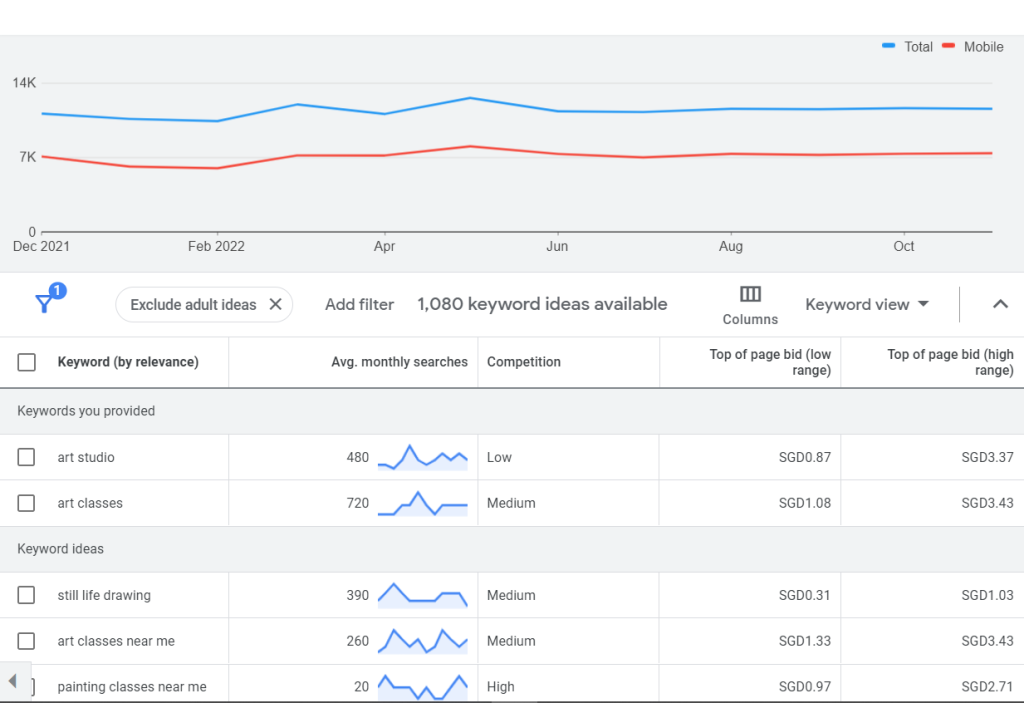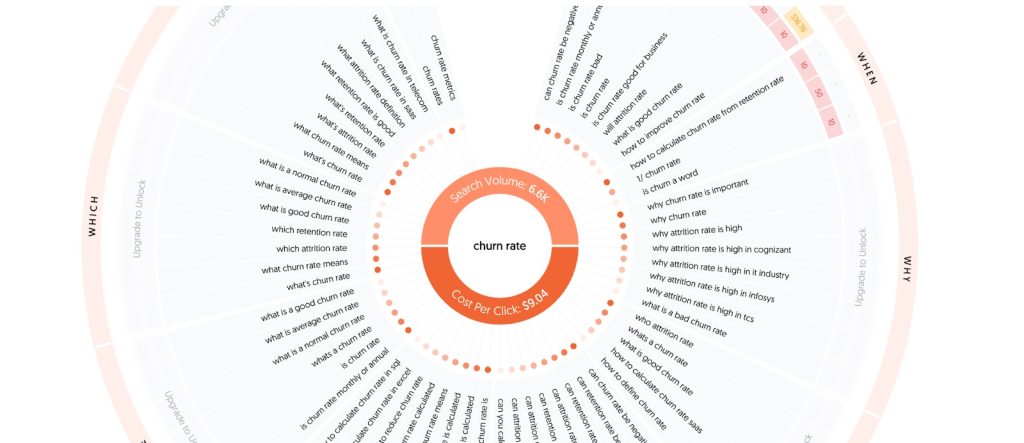List of free keyword research tool
In the dynamic world of digital marketing, search engine optimization (SEO) plays a pivotal role in enhancing a website’s visibility and driving organic traffic. At the heart of effective SEO lies keyword research, the process of identifying the terms and phrases that users search for. Keyword research tools serve as valuable assets for SEO professionals and content creators by providing insights into user intent and helping create targeted content. This article aims to present a detailed list of free keyword research tool that can aid in optimizing content for search engines while maintaining uniqueness and ensuring plagiarism-free content.In the realm of SEO, thorough keyword research forms the foundation of successful content strategies. The free keyword research tools mentioned in this article offer a diverse range of insights, from search volume and competition to trending topics and user intent. By harnessing the power of these tools, content creators and SEO professionals can optimize their strategies, ensuring that the content they produce is tailored to the needs of their target audience. As we navigate the intricate landscape of SEO, utilizing these tools will undoubtedly contribute to driving organic traffic, enhancing visibility, and achieving digital marketing goals.
What is keyword research tool
Keyword research is the process by which you research popular search terms people type into search engines like Google, and include them strategically in your content so that your content appears higher on a search engine results page.Keyword research is the process of discovering which words and phrases your target audience is using to search for websites and answers to questions on search engines. A keyword can be one or two words, but it can also take the form of a complete phrase or a question.
Each of these tools offers unique insights into keyword research. As you use them, keep in mind that keyword research is an iterative process. Combine the insights gained from different tools to build a comprehensive list of keywords that align with your content goals and audience intent. Remember, successful SEO involves not only finding keywords but also creating high-quality, valuable content around them. This approach will contribute to better search engine rankings, increased organic traffic, and a stronger online presence.
List of free keyword research tool
Certainly, let’s delve into a more detailed explanation of how to use each of the free keyword research tools mentioned in the essay:
- Google Keyword Planner:Google Keyword Planner is a staple in the toolkit of any SEO enthusiast. It provides valuable data directly from Google’s search engine, including search volume, competition, and keyword suggestions. By offering insights into user search behavior, it assists in identifying high-potential keywords.
- Access the Google Keyword Planner through Google Ads.
- Start by entering a core keyword related to your topic or business.
- The tool will provide keyword suggestions along with their search volume and competition level.
- Refine your list by selecting keywords that align with your content goals and have a balance between search volume and competition.
- Sign in to your Google Ads account.
- Click on “Tools & Settings” and select “Keyword Planner.”
- Choose the “Discover new keywords” option.
- Enter a product, service, or topic related to your content.
- Review the list of keyword suggestions along with metrics like average monthly searches and competition.
- Refine your list by focusing on keywords with relevant search volume and moderate competition.
- Find the best way to earn more from affiliated system which works like a a pro.
-
- Ubersuggest:Ubersuggest is a versatile tool that offers keyword ideas, search volume, CPC (cost-per-click) data, and keyword difficulty. Additionally, it provides an overview of top-ranking pages for a specific keyword, allowing users to analyze competitor strategies.
- Enter your primary keyword in Ubersuggest’s search bar.
- Review the generated keyword ideas, noting their search volume, CPC data, and keyword difficulty.
- Explore the “Keyword Ideas” section to uncover related keywords and their metrics.
- Analyze the “Top SEO Pages” section to understand your competition and their strategies for the selected keyword.
- Visit the Ubersuggest website.
- Enter your main keyword in the search bar and select your target country or region.
- Explore the keyword ideas section to see a detailed list of related keywords.
- Examine the metrics for each keyword, including search volume, CPC, and keyword difficulty.
- Click on the “Content Ideas” tab to see popular articles related to your keyword, which can provide content inspiration.
-
- Keyword Surfer:This browser extension offers real-time insights while users perform Google searches. It provides data on search volume, similar keywords, and backlink data. Its seamless integration with search results simplifies the research process.
- Install the Keyword Surfer browser extension (available for Chrome).
- Conduct a Google search for a relevant keyword.
- Alongside the search results, Keyword Surfer will display search volume and related keywords.
- Use this real-time data to identify keywords with substantial search volume and relevance.
- Install the Keyword Surfer extension for Google Chrome.
- Perform a Google search using your desired keyword.
- Alongside the search results, Keyword Surfer will display search volume estimates and related keywords.
- Click on the extension icon to see a more detailed breakdown of search volume and related keywords on the right-hand side.
-
- AnswerThePublic:That specially work for question type keywords like what why how related keywords which just says which are the most searched question or possible questions. AnswerThePublic focuses on generating keyword ideas in the form of questions, prepositions, and comparisons. It is an excellent resource for understanding the diverse ways users phrase their queries.
- Input your core keyword into the tool.
- Review the visual representation of questions, prepositions, and comparisons related to your keyword.
- Gain insights into the specific queries users have, helping you craft content that addresses their needs comprehensively.
- Go to the AnswerThePublic website.
- Enter your core keyword and select your language and region.
- Explore the visual map of questions, prepositions, comparisons, and related terms.
- Download the results or take screenshots for reference during content creation.
-
- Soolve:Soolve compiles autocomplete suggestions from various search engines, offering an extensive list of potential keywords. It provides insights into what users are actively searching for across multiple platforms.
- Visit the Soolve website and enter your keyword.
- The tool will present autocomplete suggestions from various search engines.
- Analyze the suggestions to identify popular queries and search trends.
- Navigate to the Soolve website.
- Enter your keyword, and the tool will present autocomplete suggestions from various search engines like Google, YouTube, Bing, and more.
- Pay attention to common phrases and queries that appear across multiple search engines.
-
- KeywordTool.io:This tool generates keyword suggestions from Google, Bing, YouTube, Amazon, and more. It helps in discovering long-tail keywords and provides insights into keyword trends.
- Select your preferred search engine (Google, Bing, YouTube, Amazon, etc.).
- Enter your keyword to generate a list of related keywords.
- Pay attention to long-tail keywords and trends specific to the chosen platform.
- Visit the KeywordTool.io website.
- Choose a search engine (e.g., Google, YouTube) and enter your keyword.
- Explore the generated list of keyword suggestions.
- Use filters to refine your results based on search volume, CPC, and competition.
-
- Seed Keywords:Seed Keywords is unique in that it allows you to involve friends and colleagues in the keyword brainstorming process. It enables you to create scenarios and ask participants to enter search queries, giving you a fresh perspective.
- Create a scenario that describes a search context.
- Share the scenario with friends or colleagues and ask them to provide search queries.
- Gather unique keyword ideas from different perspectives.
- Go to the Seed Keywords website.
- Create a scenario that outlines a specific situation or problem.
- Share the scenario link with friends, colleagues, or online communities.
- Collect the generated search queries to gather a variety of user perspectives.
-
- Google Trends:This is the place to find out only trending topics and current news.While not a traditional keyword research tool, Google Trends provides insights into the popularity of a keyword over time. It can be used to identify rising trends and seasonality, aiding in content planning.
- Enter your keyword to see its popularity over time and in different regions.
- Identify seasonal trends and spikes in interest.
- Use the data to align your content creation with current user interests.
- Access Google Trends.
- Enter your keyword and adjust the date range and location if needed.
- Explore the interest over time graph and related queries section.
- Identify patterns, spikes, and seasonal trends in user interest.
-
- Keyword In:Keyword In is a straightforward tool that appends a user-defined keyword to various search queries. This can help discover variations and permutations of a keyword.
- Input your primary keyword and choose a modifier (before, after, middle, etc.).
- The tool will generate variations of your keyword based on the modifier.
- Explore these variations to uncover different phrasings and potential keywords.
- Visit the Keyword In website.
- Enter your main keyword and choose a modifier type (prefix, suffix, etc.).
- Review the generated variations and note down relevant ones for your content.
-
- Wordtracker Scout: This browser extension provides keyword suggestions while you browse the web. It overlays data onto websites, offering insights into the keywords used in competitor content.
- Install the Wordtracker Scout browser extension (available for Chrome).
- While browsing competitor websites or related content, click the extension icon.
- The tool will display keywords used on the page, helping you understand their keyword strategy.
- Install the Wordtracker Scout extension for Chrome.
- Navigate to websites or articles related to your niche.
- Click on the extension icon to reveal the keywords used on the page.
- Take note of how competitors are incorporating keywords into their content.
Effective keyword research involves a combination of tools and strategies. While using these tools, remember to analyze the data in context. Look for keywords that not only have high search volume but also align with your content’s purpose and target audience. It’s also essential to stay up-to-date with evolving trends and adjust your keyword strategy accordingly. By diligently incorporating these tools into your SEO workflow, you can develop content that resonates with users, boosts your search rankings, and ultimately drives organic traffic to your website.
Which one among these is best and why?
Remember that no single tool is perfect for every situation. It’s often beneficial to use a combination of tools to cross-reference data and get a well-rounded view of keyword opportunities. Additionally, consider factors such as user interface, ease of use, and the specific features that align with your workflow.
Ultimately, the “best” tool is the one that helps you uncover relevant keywords, understand user intent, and create high-quality content that resonates with your target audience. Experiment with a few tools to see which ones you feel most comfortable with and which provide the insights you need to enhance your SEO efforts.
If you’re just starting out and want an all-purpose tool: Google Keyword Planner and Ubersuggest are excellent choices. Google Keyword Planner is backed by Google’s data and provides accurate insights. Ubersuggest, on the other hand, offers a comprehensive suite of features, including keyword suggestions, competition analysis, and content ideas.
If you’re looking for content inspiration: AnswerThePublic is particularly useful. Its visual representation of user questions, prepositions, and comparisons can spark creative ideas for your content.
If you want real-time keyword insights: Keyword Surfer and Soolve are great options. Keyword Surfer offers immediate search volume data alongside Google search results. Soolve aggregates autocomplete suggestions from various search engines, providing you with a wide range of potential keywords.
If you’re aiming for in-depth analysis: KeywordTool.io provides insights from multiple search engines and platforms, making it suitable for comprehensive research. Google Trends can help you identify rising trends and seasonal patterns.
If you want to involve others in brainstorming: Seed Keywords is unique in its approach to involving friends and colleagues in keyword generation, making it a fun way to gather fresh perspectives.
If you want on-page keyword analysis: Wordtracker Scout is beneficial for analyzing keywords used in competitor content while browsing the web.









